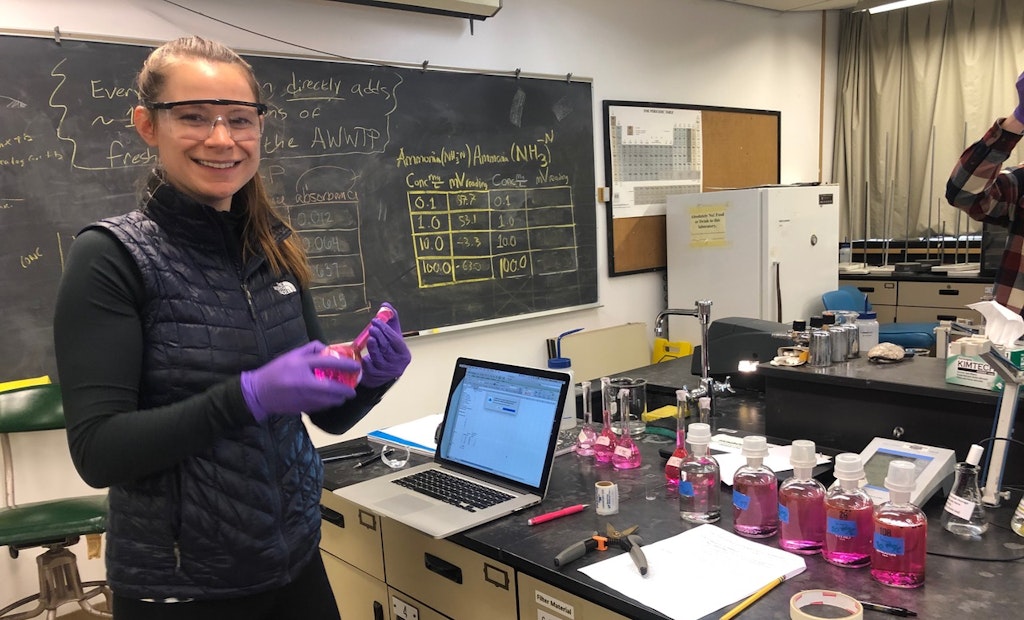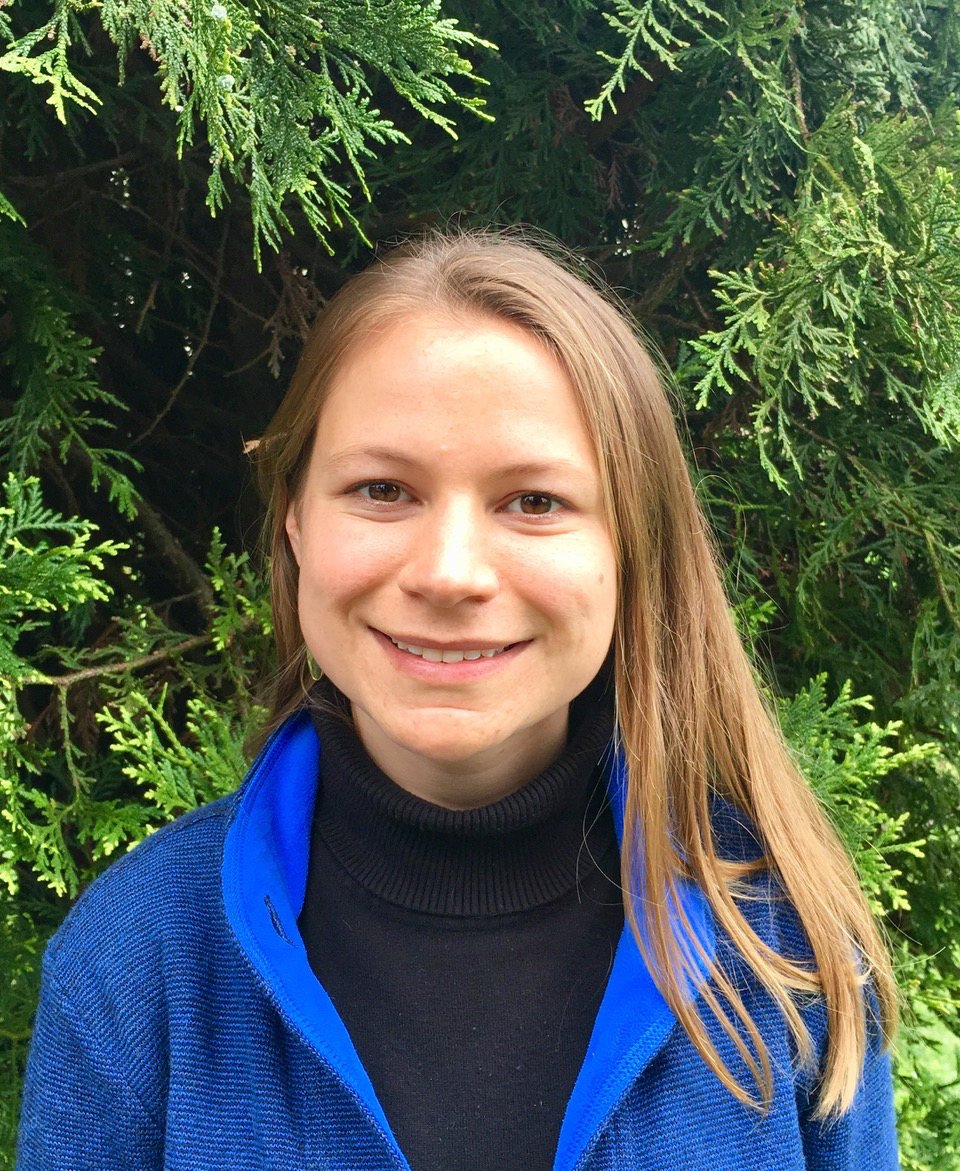Rebecca Burke — one of the winners of the 2019 National Association of Wastewater Technicians Hapchuk Scholarships — has seen a decade pass since completing her first undergraduate program. But now she’s back at Humboldt State University in California for a degree in environmental resources engineering.
Returning to the academic setting after almost a decade, the Hapchuk Scholarship winner took an unusual path through multiple occupations before discovering a passion for wastewater treatment.
Originally studying French and international studies with an emphasis in postcolonial African studies, Burke became a baker for many years before switching to a career in human resources and risk management.
“I think that’s a really valuable skill set for anybody to have, to see how the inside of a business works, and get to know the things that drive employment lawsuits, and employee relations with management — I think that was a really valuable experience,” Burke says. “But I figured out quickly that it was not the correct career path for me and my personality.”
Even the journey back into academia was long and twisting — it was about a five-year process to get her prerequisites built up at a local community college before she was able to enroll with Humboldt State University.
“I’m finally approaching my final year of school, and I’m really excited about that. I do not know where I’m going to go — the doors are kind of open right now,” Burke says. “I’ve been in Humboldt County my entire life, so I’m really open to going anywhere, which is kind of exciting. It opens up opportunities.”
A worthy recipient
Burke was one of two recipients for the NAWT scholarship, both high-achieving women who have transitioned to wastewater treatment from unrelated careers.
“It’s just a nice feeling that I was honored as a recipient, because of the people it’s coming from. I think often students will apply for scholarships just trying to get money, but it’s really an honor to be given this vote of confidence from people in the very specific industry that I’m interested in. I think that’s really special,” she says. “I’m really thankful for the opportunity they granted me with giving me funds to go toward my tuition.”
It would be hard to argue with the choice to award her the NAWT scholarship. In addition to maintaining a high GPA, she also works as a teaching assistant for several classes and has a part-time job working as a research assistant in the Arcata Marsh Research Institute.
The organization operates a small field lab on land owned by the Arcata Wastewater Treatment Facility. Started as an aquaculture testing facility, it now runs secondary testing for the treatment plant under grant funding.
Arcata’s treatment system includes oxidation ponds, enhancement wetlands and treatment marshes — overall about 250 acres of treatment processes that fall under the treatment plant’s purview.
“Our field lab is nestled right out on the border of the bay, next to the treatment marshes,” Burke says. “It’s nothing fancy, but it’s a really cool little spot. I’ve been working there for two years now, and it’s been a pivotal opportunity that got me into wastewater treatment.”
Coming full circle
This wasn’t her first exposure to wastewater treatment. During her first undergraduate program, Burke studied abroad in Senegal. While there, she toured a wastewater treatment plant and saw the effects of inadequate treatment on a once-picturesque bay near capital Dakar.
“It was just destroyed by having such an influx of nutrients — it caused this massive overgrowth of the aquatic plants. Of course, this was 10 years ago, they could have done some remediation efforts in the meantime that I’m not aware of, but at the time, they were still dumping like up to 80% of their wastewater straight into the ocean,” she says. “One of the effluent streams was into this beautiful bay. It used to be this vibrant fishing community, so we went and toured the bay afterward, and most of the fishing vessels are beached, because there are not a lot of fish left.
“That obviously still sticks with me as something that is a problem with a possible solution. And I think through remediation efforts, they could get the bay back to where it was, but it will take a lot of work,” Burke says. “It really opens your eyes to the big world of sanitation engineering. We’re needed everywhere. It definitely had an impact on me, and without me knowing it, because it was probably a good eight years later that I started my position as a research assistant.”
Looking forward
Burke plans to take the fundamentals of engineering certification test this summer, though she hasn’t fully decided whether she’ll stick with wastewater treatment design. Research also interests her, so for now, she’s preparing for all possibilities.
“I’m really loving the design class. It presents a unique opportunity to examine a real design problem and apply knowledge we’re learning in the class. I’ve looked into operator training in the past, because I do like design, but I would like the opportunity to do some research work too, so I’m still kind of exploring career options right now,” Burke says. “I think I’m going to pursue a job pretty quickly, just because I’ve taken a lot of time off from the real world to pursue my education, and I have financial responsibilities that some younger kids don’t.
“I’m really excited to enter the workforce, wherever that takes me,” she says. “I’ve been looking at different opportunities, locally and nationally, but still being a year out from graduating, I can’t get too excited. I’ve got to focus on education for now.”







